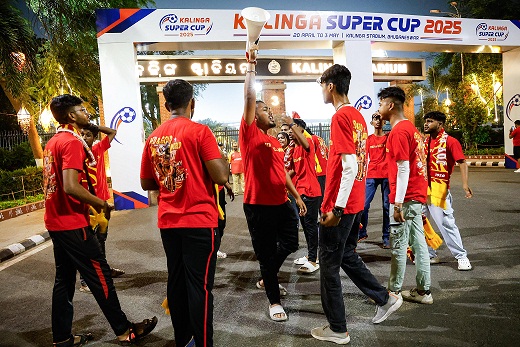- Consolidated Legal Framework for the entire Broadcasting sector
- Content Evaluation Committees for adherence to Programme Code and Advertisement Code
- Broadcast Advisory Council to replace existing Inter-Departmental Committee
- Penalty structure linked to financial capacity
- Accessibility measures for persons with disabilities
Newdelhi:10/11/23:Union Ministry of Information and Broadcasting has today invited comments on the Broadcasting Services (Regulation) Bill, 2023. The Cable Television Networks (Regulation) Act of 1995 has been in effect for three decades, serving as the primary legislation overseeing content on linear broadcasting, including cable networks. However, the broadcasting landscape has undergone significant changes in the interim. Technological advancements have introduced new platforms such as DTH, IPTV, OTT, and various integrated models.
With the digitization of the broadcasting sector, especially in cable TV, there is a growing need to streamline the regulatory framework. This involves ensuring ease of doing business and enhancing adherence to the Programme Code and Advertisement Code by the broadcasters and Distribution Platform Operators. Recognizing the need for a more cohesive approach, the existing fragmented regulatory framework is required to be replaced with a new, comprehensive law.
Ministry of Information and Broadcasting, Government of India has proposed a draft Broadcasting Services (Regulation) Bill, 2023. The draft Bill provides for a consolidated framework to regulate the broadcasting services in the country and seeks to replace the existing Cable Television Networks (Regulation) Act, 1995, and other Policy Guidelines currently governing the broadcasting sector in the country.
The Bill streamlines regulatory processes, extends its purview to cover Over-the-Top(OTT) content and digital news, and introduces contemporary definitions and provisions for emerging technologies. It seeks to provide Content Evaluation Committees and a Broadcast Advisory Council for self-regulation, different programs and advertisement codes for different Broadcasting Network Operators, Accessibility measures for persons with disabilities, and statutory penalties, etc.
The Bill comprises Six Chapters, 48 Sections, and three Schedules.
Key Highlights:
1. Consolidation and Modernization: It addresses a long-standing need to consolidate and update the regulatory provisions for various broadcasting services under a single legislative framework. This move streamlines the regulatory process, making it more efficient and contemporary. It extends its regulatory purview to encompass broadcasting over-the-top (OTT) content and digital news and current affairs currently regulated through IT Act, 2000 and regulations made there under.
2. Contemporary Definitions and Future-Ready Provisions: To keep pace with the evolving technologies and services, the bill introduces comprehensive definitions for contemporary broadcasting terms and incorporates provisions for emerging broadcasting technologies.
3. Strengthens the Self-Regulation Regime: It enhances self-regulation with the introduction of ‘Content evaluation committees and evolves the existing Inter-Departmental Committee into a more participative and broader ‘Broadcast Advisory Council’.
4. Differentiated Programme Code and Advertisement Code: It allows for a differentiated approach to Programme and Advertisement Codes across various services and requires self-classification by broadcasters and robust access control measures for restricted content.
5. Accessibility for Persons with Disabilities: The bill addresses the specific needs of persons with disabilities by providing enabling provisions for issue of comprehensive accessibility guidelines.
6. Statutory Penalties and Fines: The draft Bill introduces statutory penalties such as advisory, warning, censure, or monetary penalties, for operators and broadcasters. Provision for imprisonment and/or fines remains, but only for very serious offenses, ensuring a balanced approach to regulation.
7. Equitable Penalties: Monetary penalties and fines are linked to the financial capacity of the entity, taking into account their investment and turnover to ensure fairness and equity.
8. Infrastructure Sharing, Platform Services, and Right of Way: The bill also includes provisions for infrastructure sharing among broadcasting network operators and carriage of platform services. Further, it streamlines the Right of Way section to address relocation and alterations more efficiently and establishes a structured dispute resolution mechanism.
The Ministry of Information and Broadcasting is committed to ushering in a new era of transparency, Self-regulation, and future-ready broadcasting services in the country with the Draft Broadcasting Services (Regulation) Bill, of 2023.
The Ministry invites feedback and comments on the above Bill from a wide range of stakeholders, including domain experts, broadcasting services providers and the general public. The comments can be sent by email to jsb-moib[at]gov[dot] within 30 days from the date of this press release.
 Odisha news today, Latest Oriya News Bhubaneswar Online Odia news Portal
Odisha news today, Latest Oriya News Bhubaneswar Online Odia news Portal




